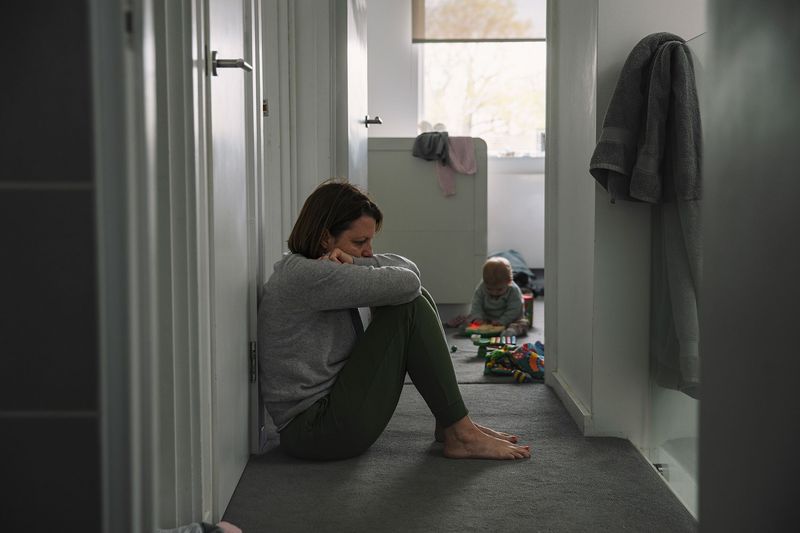If You’re Not Ready for These 16 Challenges, Caring for Aging Parents Could Break You
Love alone won’t protect you from burnout — preparation will. Caring for aging parents is like trying to juggle water: everything slips through your fingers just when you think you’ve got it handled.
There’s fierce love, yes, but also a wild mash-up of guilt, worry, exhaustion, and the secret heartbreak of watching your parent fade. If you don’t walk in with your eyes open and your boundaries solid, the emotional and physical toll can sneak up and flatten you before you know what hit you.
This is a season that can leave you feeling stretched thin, pulled in a thousand directions, and wondering if anyone else truly gets it. I’ve been there — feeling invisible, frazzled, and, honestly, a little mad at everyone (including myself).
These aren’t just random hurdles; they’re real, messy, and sometimes life-changing challenges. Get ready for the honest tea: here are 16 things you absolutely need to be ready for, or caregiving might just break you.
1. Watching your parent decline — while trying to stay strong for them

There are moments when you catch your parent staring blankly at a wall, or struggling to remember where the remote went, and it just punches the air from your chest. You want to hold them up, but inside you’re breaking down.
The hardest part? Putting on that brave face, even when you feel like sobbing quietly in the hallway. There’s a weird pressure to be the strong one, because they need you now — maybe more than ever.
Sometimes, it feels like you’re both pretending for each other, tiptoeing around the truth. No one warns you how much that can hurt.
2. Becoming the “parent” in the relationship

Suddenly, you’re the one who’s reminding them to eat, sleep, and take medicine. You’re the calendar keeper, the taxi driver, and the therapist — all rolled into one.
Nothing prepares you for the day your mom calls you to ask if she should wear a sweater, or your dad grumbles about his pills but waits for you to hand them over. It’s upside down, and honestly, it stings a little.
The cringiest part? That tiny flicker of resentment, because you remember when they were the ones tucking you in. Now, the roles have flipped, and it’s weirdly lonely.
3. Constant emotional guilt (even when you’re doing your best)

Even if you’re running yourself ragged, guilt finds a way to tap you on the shoulder. Should you have called more? Is it okay to want time for yourself?
There’s no magic cure for guilt — it oozes in whether you’re superwoman or barely hanging on. And don’t even get me started on the guilt Olympics you play against your own mind.
No matter how much you do, it often feels like it’s never enough. You’ll learn to live with a low hum of guilt, but giving yourself some grace is the only way to stay sane.
4. Feeling alone — even when you have siblings

You’d think sharing DNA would mean sharing responsibility. Not always. Sometimes, you’re the only one who shows up.
Maybe your siblings live far away, or maybe they’re just ‘too busy.’ Either way, resentment brews when texts go ignored and calls get brushed off. It’s infuriating, but also isolating in a way that’s hard to explain to anyone who hasn’t been there.
You start to wonder if you’re invisible, or if everyone just assumes you’re “the strong one.” For many, caregiving is a one-woman show, even in a full family.
5. Managing medical care you don’t fully understand

Ever been handed a stack of new prescriptions and felt like you’re reading a foreign language? That’s daily life when you’re the medical point person.
Specialists, insurance forms, medication side effects — you’re expected to keep track, even when you’re running on empty. The learning curve is steep, and Google is both your lifesaver and your worst enemy.
You’ll mess up sometimes. You might forget a question at the appointment, or mix up a pill bottle. No one’s born knowing how to be a medical advocate — it’s a crash course, and the stakes are high.
6. Making legal and financial decisions with lifelong consequences

Suddenly, you’re signing paperwork that feels way bigger than you. Power of attorney? Wills? Nursing home contracts?
It’s overwhelming to realize you’re the one steering the ship. Each decision feels like it’s etched in stone — and messing up could haunt you for years.
The pressure is real, and it’s scary. But you find a way, one signature at a time. Sometimes, you just wish there was a manual for this stuff.
7. Navigating their emotional changes (and sometimes anger)

No one talks about how your sweet parent might suddenly snap at you for no reason. Dementia, fear, or just plain stubbornness can twist the person you knew into someone unfamiliar.
You become the lightning rod for their bad days — and sometimes, that anger feels personal, even when you know it’s not. It’s tough to keep your cool when their moods whip around with no warning.
You’ll get hurt, you’ll get mad, and then you’ll feel guilty for both. The truth? Emotional whiplash is almost guaranteed. And you’re allowed to talk about it.
8. Trying to balance your own life — and constantly dropping the ball

Some days, it feels like everyone wants something from you at the exact same moment. Your parent needs their meds, your boss wants you on Zoom, your kid is melting down over missing socks.
You’re spinning so many plates, and at least one is bound to crash. The guilt hits whether it’s a work deadline or your own self-care that slips through the cracks.
Trying to be everything for everyone isn’t just exhausting — it’s impossible. Something will give, and that’s not a moral failing. It’s just math.
9. The unspoken grief of “losing” them before they’re gone

There’s a special kind of sadness that creeps in when your parent is physically here but mentally drifting away. You mourn the conversations you can’t have, the advice you’ll never get again.
You grieve in tiny, everyday moments — when they forget your birthday, or can’t follow a story you’re telling. The loss is slow and invisible, so you rarely talk about it.
This quiet grief can be heavier than the eventual goodbye. It lingers in the background, changing you in subtle, permanent ways.
10. Feeling invisible in your own pain

The focus is always on your parent — how they’re doing, what they need. But hardly anyone asks how you’re holding up.
You start to feel like a ghost in your own life, your struggles unseen and your exhaustion ignored. Even well-meaning friends forget that you might need a hug or a hot meal, too.
It’s a lonely spot, made worse by the expectation that you’ll just keep soldiering on. Your pain is real, even if no one else sees it.
11. Financial strain you didn’t see coming

Money stress sneaks up and socks you in the gut. From missed work to surprise medical expenses, dollars seem to vanish faster than you can earn them.
You start eyeing every expense — groceries, gas, even birthday gifts — with a new kind of anxiety. The emotional weight of being the financial safety net for your parent is no joke.
No one likes talking about money, but ignoring it just makes things worse. Sometimes, the hardest conversations are the ones that eventually save you.
12. Burnout that builds slowly — then hits all at once

You keep going, telling yourself you’re fine — until one day, you’re not. The meltdown comes out of nowhere.
Maybe you burst into tears in the grocery store, or snap at your kid for asking a simple question. Burnout isn’t just tiredness. It’s running on fumes and still expecting yourself to sprint.
You’ll realize that taking breaks and asking for help is survival, not weakness. Burnout doesn’t make you a bad daughter — it just means you’re human.
13. Lack of privacy or personal space

There’s nothing like hearing, ‘Are you in there?’ through the bathroom door to remind you your privacy is gone. Sharing space with a parent means your sanctuary vanishes in a snap.
Your routines change: late-night snacks are stealth missions, and alone time feels like a luxury you can’t afford. Even your thoughts get crowded out by their needs.
You’ll crave a bubble of quiet more than you ever thought possible. Protecting your space, even for ten minutes, becomes sacred.
14. Resentment you don’t want to admit

You love them, but sometimes you resent the endless giving — and then feel guilty for feeling that way. Resentment sneaks in when you’re the only one who keeps showing up.
It’s a taboo topic, but it’s more common than you think. You’re not a monster; you’re just a person with limits.
The guilt about your own resentment can double the pain. Admitting it is the start of letting it go, not a sign that you’ve failed.
15. Constant decision fatigue

Every tiny choice, from what to cook to which doctor to call, lands on your plate. You’re the CEO of a company you never applied to run.
Your brain turns to mush after the hundredth decision, and second-guessing becomes your new hobby. The mental load is as tiring as the physical.
Sometimes, you wish someone would just tell you what to do for once. Decision fatigue is real — and it can leave you paralyzed.
16. Realizing you’re grieving the parent you wish they had been

When caring for a parent who wasn’t always loving or present, old wounds can rip wide open. The ache isn’t just for who they were, but for who you wish they’d been.
Taking care of them now can trigger memories — good, bad, or unresolved. It’s complicated, and sometimes grief gets tangled up with anger or relief.
Healing doesn’t mean forgetting the past. It means allowing yourself to feel all the messy feelings, even the ones you wish weren’t there.







